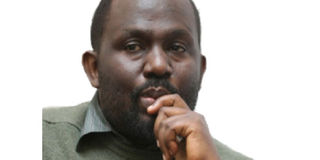Only fools try to create cities, but Uganda has some hope

The recent Cabinet decision to create a series of new cities in Uganda is, on the face of it, a good move. Cities bring new wealth, jobs and, in a perfect world, are centres of innovation. However, the idea that you can create a city through legislation and then throwing money is the path to failure. There is a reason why a wise man once said something about how only a fool tries to create city – it most grows organically.
It is like all those efforts to create technology cities in Africa. Almost all of them have failed, and the efforts that continue are haemorrhaging money.
Let’s look at two examples. You do not hear much about Pointe-Noire, a coastal city in the Republic of Congo. When Congo struck oil, it built the otherwise impressive Antonio-Agostinho-Neto International Airport to service the promise of a new city built on “black gold.”
But oil, in the end, nearly killed the city.
Highly paid local and expatriate oil workers flooded the city, and prices of everything – food, rent, booze – skyrocketed out of control. Unless you were earning big oil money – and the recent near-collapse of oil prices didn’t help - you couldn’t live comfortably there. Many people left.
Pointe-Noire is still a relatively densely populated city, but the majority of the people are poor. Most of the things dependent on a large middle class, including the airport, became largely derelict.
Closer home, the lakeside town of Kisumu was declared a city in 2001 when Daniel arap Moi was still president of Kenya. Local musicians and the children of the soil from there bragged about it, but it remained a modest town, with industries closing.
On a trip there in 2006, at “airport”, most of us had to wait for our flight outside under a tree. Today, it is nearly a respectable medium size African city, clean, and bustling. What happened?
All the actions that made it a city were not intended to. To begin with, there was post-election violence (PEV) in 2008 that shook the country to the bone. The elite from the wider Kisumu region, and it has a large professional class, moved their wealth “back to the safety of home,” leading to a massive injection of capital that begun to lift Kisumu.
In the uneasy grand coalition stitched together to heal the post-election rift between president Mwai Kibaki and prime minister Raila Odinga’s camps, the airport was upgraded to an international one and a new near-world class structure was built, partly as a social bribe, and strategically as an attempt to deradicalise so-called “Luo politics.”
But the airport would have become like the one in Pointe-Noire if two other things hadn’t happened. One, was climate change. The northeast parts of Kenya were and continue to be ravaged by inclement weather, that gave a blow to its agriculture, but sparing the western part, including Kisumu. Agricultural investment moved to the area around Kisumu, allowing horticultural farming to grow the produce to be exported from the airport.
And the PEV also led to the 2010 Constitution, which radically redistributed wealth under the highly devolved counties, leading to the rise of a new (corrupt) “rural” elite, who used the new funds to grow local economies.
There were other factors like relatively cheap cement from factories in Tororo that fuelled a construction boom in western Kenya (and Rift Valley) made possible by radical improvements in ease of border crossings as a result of the entrenchment of the East African integration project.
Though the outcome has been largely a happy one for Kisumu, none of those factors were foreseen or designed when it was made a city. They were either organic, or accidental.
But at least they give us a pointer as to how to create cities. The money for the cities, should not be given directly to officials to build offices and so on. That won’t work.
First of all, Uganda should open its skies and upgrade airstrips like the one in Arua, Mbarara, and so on, so that one can fly straight to these places from Kisumu, Nairobi, Juba, or Kigali.
One of the keys to making Mbale a city is to upgrade Tororo airstrip, for example. Local politicians fighting for vanity projects might not see it that way though. For the cities to the east and north, the magic bullet is in helping end the conflict in South Sudan. And to the west, it is in the return of peace and economic boom in eastern Democratic Republic of Congo, where Uganda can actually play a more positive role than it has in the past.
And, of course, to open up the local labour market to other East Africans, and deepen the East African Community project.
But what do I know, I am just a scribbler.
Mr Onyango-Obbo is the publisher of Africa data.visualiser Africapedia.com and explainer site. Roguechiefs.com. Twitter@cobbo3




